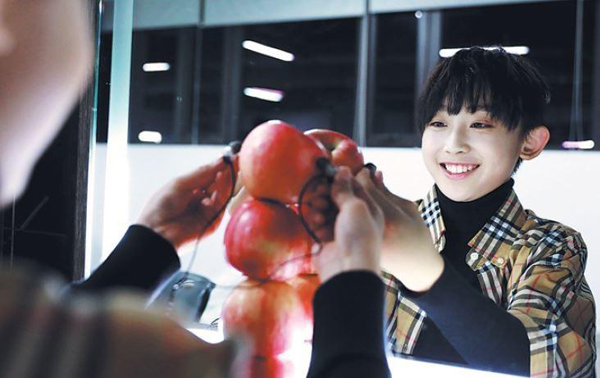Youngsters chase their dreams of stardom


"I like watching pop groups perform because it's really cool to dance like that. I want to dance like them," added Jia, a hip-hop music fan and winner of national street dance competitions.
Li, who comes from Tianjin, said: "We made our debut at the Hong Kong Coliseum in October last year, which was very exciting. We were close to the audience and we felt proud because we didn't make any mistakes onstage."
The youngsters are studying at an art school in Beijing, and after lessons they soon find themselves back in a classroom for singing and dancing training. This will continue if they are signed by a major label.
Si launched I.E.One Entertainment in August to focus solely on discovering, training and managing young Chinese idols. "Despite the intensive training and fierce competition, more and more young Chinese are becoming lianxisheng," he said.
It has long been Si's ambition to produce Chinese pop idols who go on to find worldwide fame.
He said that apart from the three young women, the company trains three men of similar age who will hopefully perform as a group.
"Some of the lianxisheng won't make it and some of them quit because the training is too harsh," Si said. "Only those who work hard and have real talent will stay and get the chance to become idols."
The 40-year-old Beijing native formed the idea to launch Chinese pop groups in 1996 after he became interested in K-pop.
" When I was 20, I had a girlfriend from South Korea. We often hung out around Beijing's Wudaokou area, which has lots of universities and foreign students," Si said. "I noticed that those students listened to K-pop and dressed like K-pop stars, and this inspired me. Chinese young people also love music. Why not have our own pop groups?"
From 1998 to 2008, Si worked in Beijing with one of South Korea's largest entertainment management agencies, S.M. Entertainment, and became involved in bringing K-pop stars to China, such as H.O.T and Baby V.O.X.





































